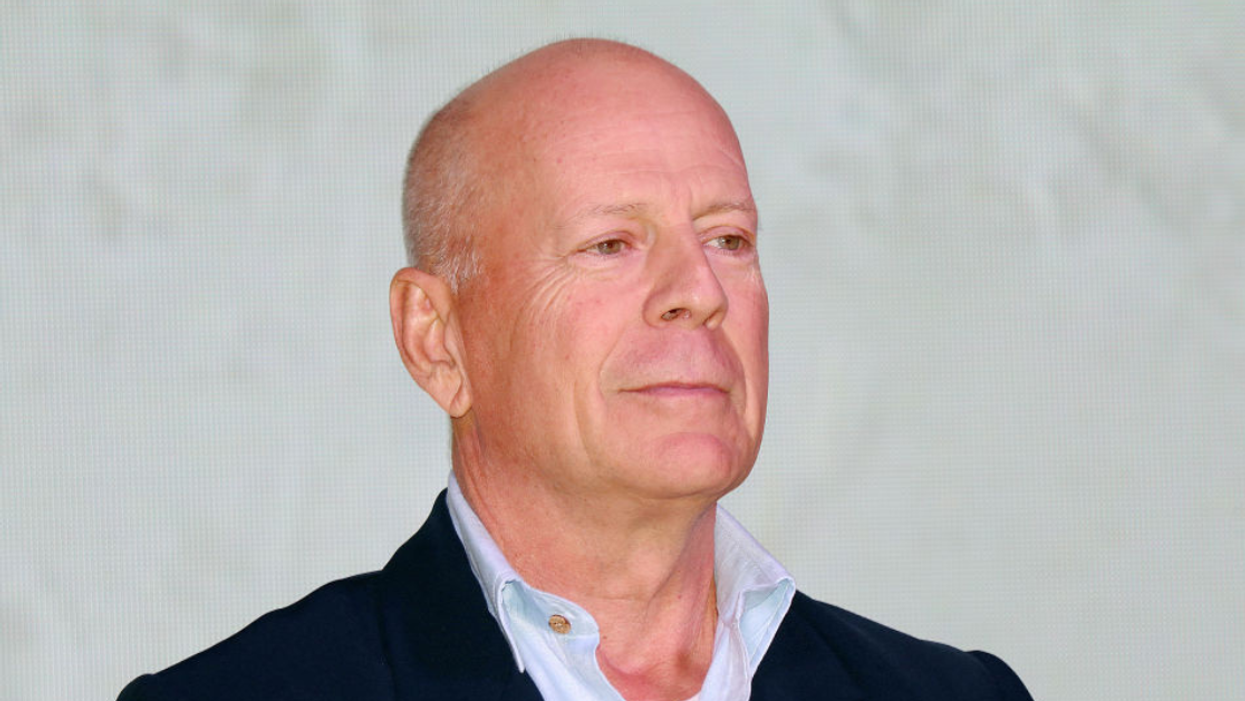In March of last year, Bruce Willis' family made the announcement he was retiring from acting after being diagnosed with aphasia. Aphasia is a disorder that affects communication, impacting speech as well as comprehension of written and spoken language.
In a devastating update from Willis' wife Emma this week, she announced her husband's condition has progressed and has been more specifically diagnosed with frontotemporal dementia (known as FTD). While she revealed the news was "painful" to receive, the family is grateful to have more details of his condition.
She began her post by sharing the family's gratitude for the continued support and kind words they received since the initial diagnosis in the Spring.
"Our family wanted to start by expressing our deepest gratitude for the incredible outpouring of love, support and wonderful stories we have all received since sharing Bruce's original diagnosis."
She explained his new diagnosis.
"In the spirit of that, we wanted to give you an update about our beloved husband, father and friend since we now have a deeper understanding of what he is experiencing."
"Since we announced Bruce's diagnosis of aphasia in spring 2022, Bruce's condition has progressed and we now have a more specific diagnosis: frontotemporal dementia (known as FTD)."
"Unfortunately, challenges with communication are just one symptom of the disease Bruce faces. While this is painful, it is a relief to finally have a clear diagnosis."
Upon learning of the update, friends, family and fans sent their continued love and support to the family.









FTD is the result of damage to neurons—progressive nerve cell loss—in the frontal and temporal lobes of the brain with possible symptoms including trouble communicating, difficulty with walking, unusual behaviors and emotional issues that usually worsen over time.
The family's official statement can be read here.
Their hope is that Bruce's diagnosis will raise awareness and attention to the disease and help others going through a similar experience.
"Bruce always believed in using his voice in the world to help others, and to raise awareness about important issues both publicly and privately. We know in our hearts that—if he could today—he would want to respond by bringing global attention and a connectedness with those who are also dealing with this debilitating disease and how it impacts so many individuals and their families."
The statement finished:
"Bruce has always found joy in life—and has helped everyone he knows to do the same. It has meant the world to see that sense of care echoed back to him and to all of us."
"We have been so moved by the love you have all shared for our dear husband, father, and friend during this difficult time. Your continued compassion, understanding, and respect will enable us to help Bruce live as full a life as possible."














 @sko2535/Threads
@sko2535/Threads @hayderz/Threads
@hayderz/Threads @zetaplant2/Threads
@zetaplant2/Threads @dark_elle_akalisa/Threads
@dark_elle_akalisa/Threads @freeasfox/Threads
@freeasfox/Threads @mygirlfriday007/Threads
@mygirlfriday007/Threads drbenwayoperates/Threads
drbenwayoperates/Threads

